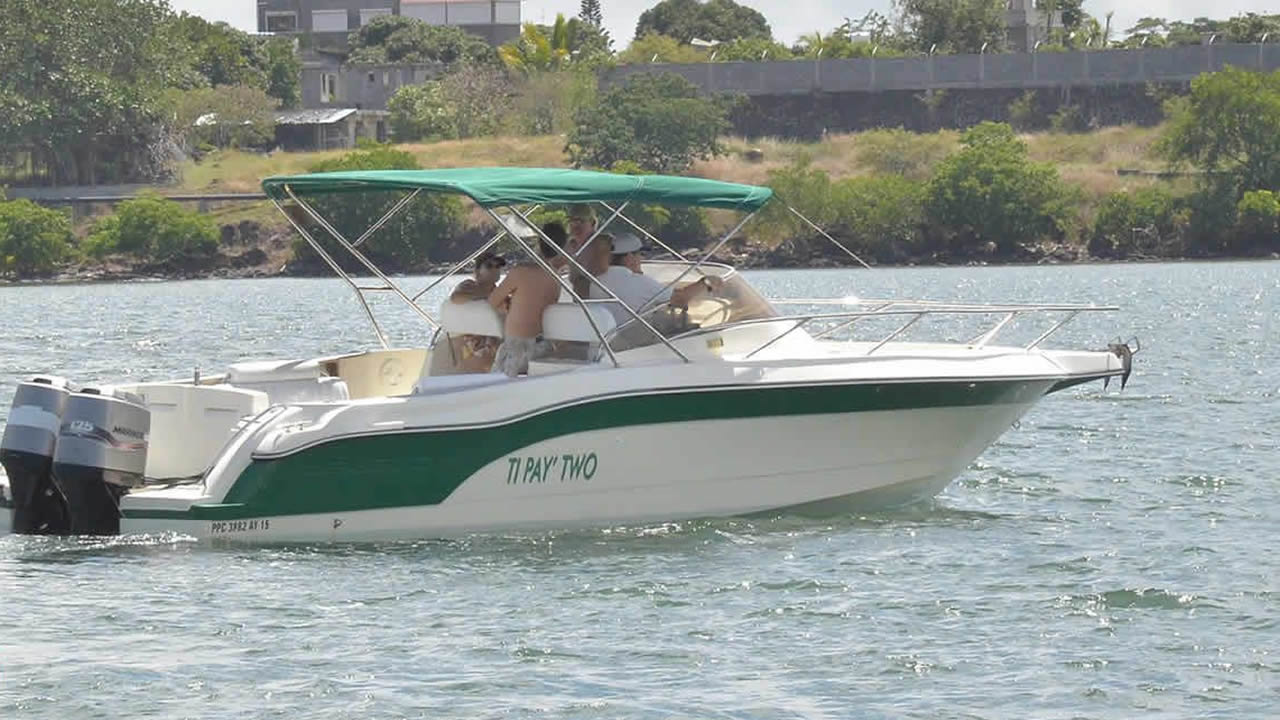
Ever since the Tourism Authority brought about new regulations for pleasure craft operators, many of them, especially in the Eastern part of the island, are at loggerheads with the authorities. They claim they are being unduly harassed but the authorities maintain that they are only enforcing the law to ensure full compliance. So how did it all start and what do boaters want?
Eastern boaters are clashing with the Tourism Authority since the proclamation of new regulations designed to put an end to illegal operations, eliminate unfair competition, improve safety and ensure boat passengers are adequately protected.
The litigation hovers around two main points: The demarcation of new embarkation points and the need to issue formal receipts to passengers. Those who fail to comply with the conditions attached to their operating licences may see their licences suspended for up to three or six months. But many boaters are not happy with the situation and some have been protesting out aloud while one boater, Jonathan Dardenne, even resorted to a hunger strike. The protesters that claim the authorities are practising a policy of double standards when dealing with those suspected of illegal operations, targeting some and ignoring others.
However, the Tourism Authority dispels these allegations as unfounded and reiterates its endeavour to clear the mess, in the interest of all: Boaters, passengers, other sea users and the marine environment.
Khoudijah-Maudarbocus Boodoo : “Find proof for one case of favouritism”
 The Director of the Tourism Authority, Khoudijah-Maudarbocus Boodoo, is categorical. “We are just applying the law to bring order. If every licence holder abides by the conditions of his licence, there would be no conflict,” she says. She points out that each pleasure craft license is linked to a specific embarkation point. “Everybody wants to come and work at Trou d’Eau Douce, but it’s not possible. It’s already a saturated zone.” She adds that the person who went on a hunger strike has a license to operate from Belle Mare, but he wants to operate in Trou d’Eau Douce. “We cannot issue a new licence for Trou d’Eau Douce, otherwise we will have to do it for all the other applicants who also want it.”
The Director of the Tourism Authority, Khoudijah-Maudarbocus Boodoo, is categorical. “We are just applying the law to bring order. If every licence holder abides by the conditions of his licence, there would be no conflict,” she says. She points out that each pleasure craft license is linked to a specific embarkation point. “Everybody wants to come and work at Trou d’Eau Douce, but it’s not possible. It’s already a saturated zone.” She adds that the person who went on a hunger strike has a license to operate from Belle Mare, but he wants to operate in Trou d’Eau Douce. “We cannot issue a new licence for Trou d’Eau Douce, otherwise we will have to do it for all the other applicants who also want it.”
The Trou d’Eau Douce lagoon has reached saturation point. It is the responsibility of the Tourism Authority to manage this area without harming the interests of other users while protecting the lagoon’s marine ecosystem. “The authority no longer issues new licences for this area,” she says. But what about the licence granted to an operator at Grand River South East? She replies that there has been no new permit, but that the operator simply asked to regroup all his boats with existing licences.
And what does she have to say about allegations of favouritism? The director retorted that “Allegations are being made to disrupt the good work the TA is doing. I challenge anyone to come forward and to find tangible proof for a single case of favouritism and report it to the ICAC.
I assure you that the Tourism Authority operates transparently and strictly according to the regulations.”
To our observation that there is a restaurant that carries its customers by boat in the area, Mrs. Boodoo explains that this is another type of licence, the ‘Ferry Boat’ and the said restaurant do not offer any pleasure craft services, but rather offers a free ride to customers who visits the restaurant. “It’s their marketing model otherwise no one would come to the restaurant. There are also private boarding points belonging to the hotels to operate ‘Ferry Boats’ for their own customers. Everything is done according to established rules and the law makes provision for that.”
The pleasure craft licence
A pleasure craft license has several conditions attached to it. It defines the assigned embarkation point, the number of persons allowed on board, including the crew members and also indicates whether the boat is allowed to operate outside the lagoon. The conditions of a licence are clearly stipulated in the Tourism Authority Act and the regulations.
Embarkation points
The 2017 regulations, proclaimed in January 2018, establish a list of 44 boarding points for licensed commercial boaters across the country. However, there may be several boarding points in the same area, for example there are two points at Trou d’Eau Douce, three at Le Morne, three at Grand Baie, and so on. A boat cannot embark a customer from a site other than the one stipulated on his licence, but he can take back his own client that he has previously dropped anywhere. Boarding points are akin to the ‘Taxi Stand’ system where each taxi operates from its official base of operation. However, if all taxis on the island want to work at Place D’Armes, there would be anarchy.
What are the issues?
According to the Tourism Authority, a large majority of pleasure craft operators are already respecting the new rules because they all want to operate within a legal framework where there is a healthy competition and where customers feel safe. Indeed, these law-abiding boaters are themselves denouncing illegal practices, because those operating out of their zones not only compete unfairly but their customers are not adequately protected by law. Illegal operators also use ‘canvassers’ to attract customers and do not hesitate to reduce their prices, to the detriment of other lawful operators. Worse, some are said to carry more passengers than the authorised limit, putting lives in danger. Some operators do not agree to issue a detailed receipt to each passenger, as stipulated by the new regulations.
Why issue a receipt?
According to the regulations, every boater must issue a receipt to each commercial passenger. The receipt must bear a serial number and indicate the name of the passenger, the date of the trip, the time and point of embarkation, the destination of the passenger, the name of the operator and its ‘Business Registration Number’.
Thus, an operator cannot embark customers at a boarding point not listed in its permit. Issuing a receipt means no one will be able to engage in illicit practices. The receipt also offers customers protection in the event of a compensation claim or complaint where an operator must be traced. Prem Beerbul, licensed operator and spokesperson of a group of protesters, says he finds it illogical to issue a receipt to each member of a family or a group taking a boat tour.
However, the authorities claim that the law which specifies a receipt must be issued to each passenger has been analysed and validated by the State Law Office, so it cannot be termed as ‘ridicule’. “Even when a family travels by bus or by plane, each person has his own ticket. This is a general rule,” says an officer. But Prem Beerbul opines that it is inconvenient, for example in cases where he has many Chinese or German clients, and understanding or spelling their names is difficult. In such cases, he would like to issue a single ticket bearing the name of the family or group leader and notes the number of accompanying persons. He also dismisses the claim that the receipt helps to bring better control or protection on the ground that the law did not even impose the mentioning of the fare paid.
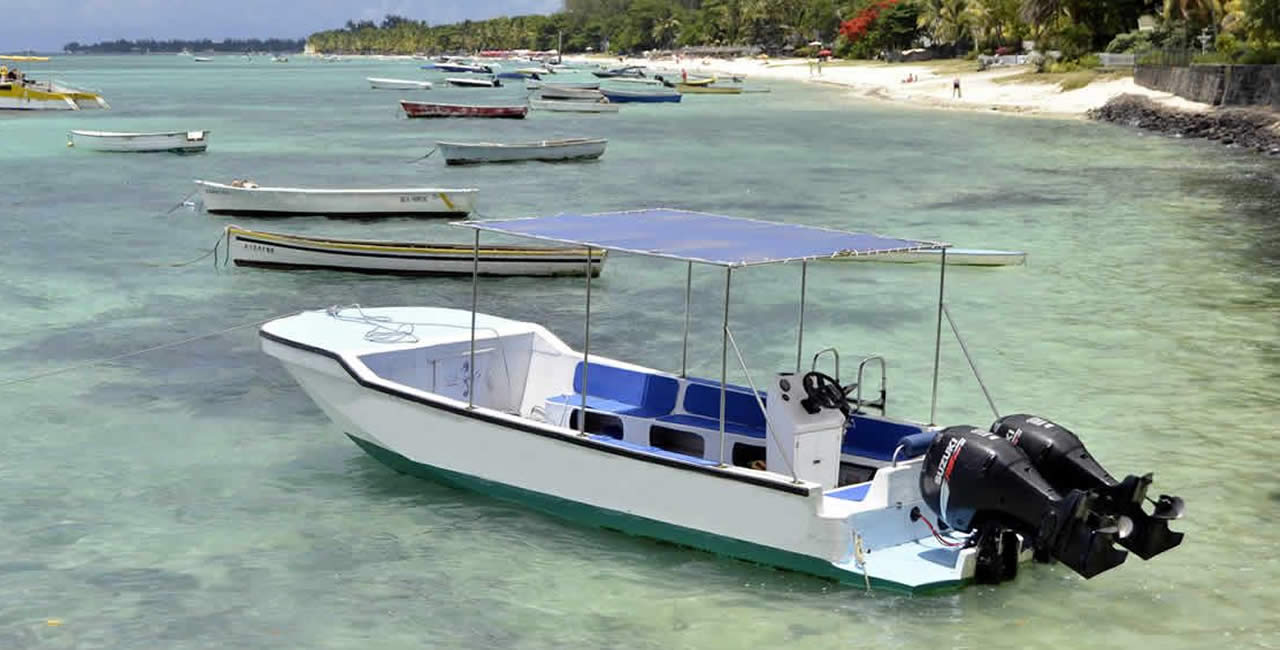
Figures
According to official figures, as at 30th January 2019, there were approximately 1,205 commercial licence holders and 1,270 private licensees. Concerning the East, there are about 53 permit holders at Trou d’Eau Douce, 77 at Belle Mare,
28 at Palmar and 60 at Ile Aux Cerfs.
Prem Beerbul : “We are proposing practical solutions”
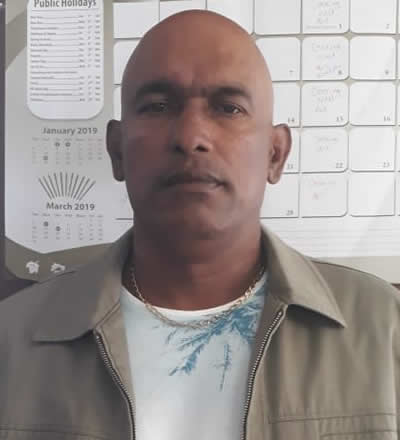 Prem Beerbul, a spokesperson for the ‘Federation of Pleasure Craft Operators’, tells us that he has proposed several solutions to the authorities to ease the standoff. He cites the use of taxis to transport customers from Belle Mare or Palmar to Trou d’Eau Douce from where they can board pleasure crafts. “We are not going to take the customers of others.
Prem Beerbul, a spokesperson for the ‘Federation of Pleasure Craft Operators’, tells us that he has proposed several solutions to the authorities to ease the standoff. He cites the use of taxis to transport customers from Belle Mare or Palmar to Trou d’Eau Douce from where they can board pleasure crafts. “We are not going to take the customers of others.
Our customers will be brought by taxi. By doing so, we will create jobs for taxi drivers as well,” says Prem Beerbul. He also suggests the implementation of “Embarkation at sea”, especially in cases where larger crafts cannot dock at some boarding points. “In these cases, small boat operators will act as feeders to larger boats, so we create opportunities for them too.” He refutes the argument that boarding at sea is risky because, according to him, the Trou d’Eau Douce lagoon is one of the calmest and safest on our coast. He reveals that many tourists wait a long time at Trou d’Eau Douce beach before being able to embark due to lack of boats and some end up returning to the hotel, cancelling their trips. “It’s the economy that is badly affected and the image of the sector is at stake,” he says.
He argues that it is not unfair competition that is causing some operators to lose customers, but rather the innovative marketing methods of others. “The business world is evolving. Those who invest in new marketing tools will, of course, fare better.” Prem Beerbul says he has a special thought for the operators whose embarkation point is at Ile aux Cerfs, because they will never have customers as this place is a more a destination than a starting point. He recalls that it was the Tourism Authority itself, in the past, which had authorized Palmar and Belle Mare permit holders to use the Trou d’Eau Douce embarkation point, arguing that many of Trou d’Eau Douce permit holders also own boats at Palmar or Belle Mare. He concludes that, even though there are, according to the Tourism Minister, nearly 218 permit holders in the East at any given time there are barely 35 boats using the Trou d’Eau Douce point.
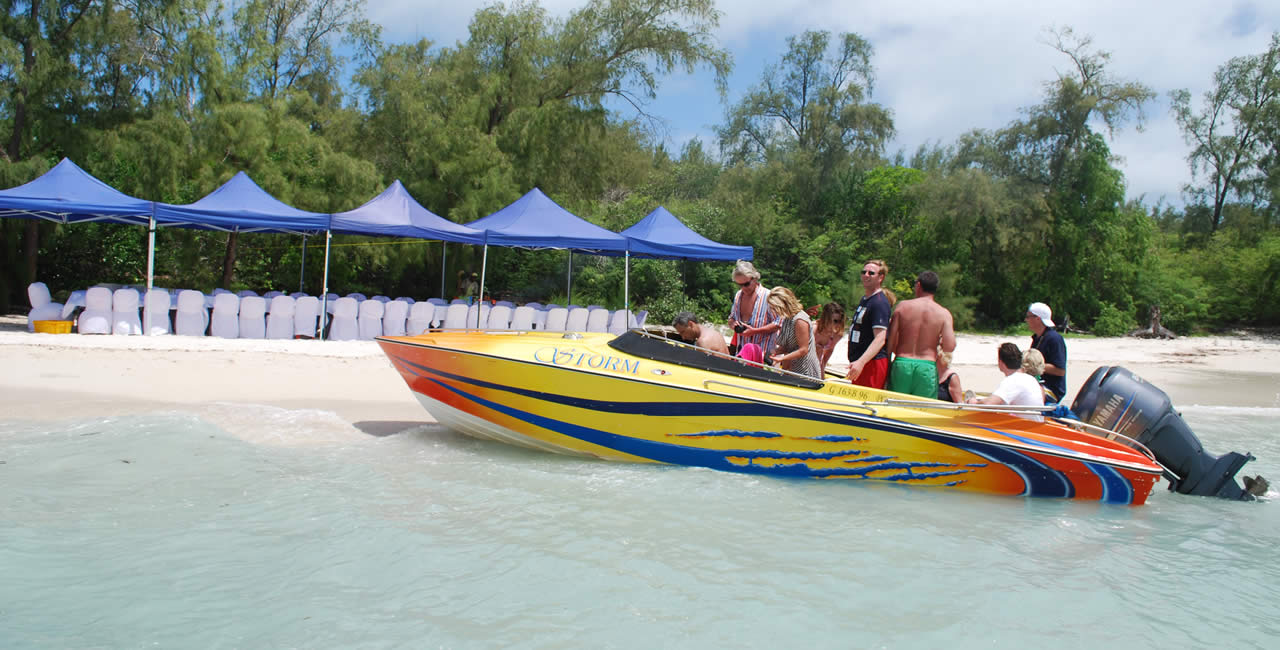
Opinion : a time bomb on the east coast
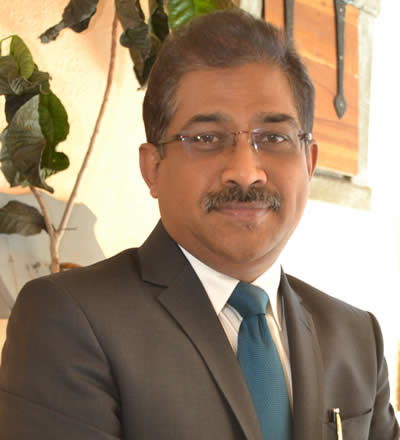 The situation prevailing at Trou d’Eau Douce with regard to pleasure craft operations is indeed worrying and, if unchecked, I may even term it as a time bomb on the East Coast. Every pleasure craft operator wants to operate from Trou d’Eau Douce because of Ile aux Cerfs. It is a place where greed for money at all costs has no limit. Whilst quite a few operators are genuine, honest and work as true professionals, a few still believe they can reign supreme in that area due to their political backing. It’s a place where the law is openly flouted, guidelines simply ignored, pleasure craft operators embarking passengers outside their base of operation heading for Ile aux Cerfs and in breach of established rules and to the detriment of the law abiding operators. Often times the law enforcement officers are humiliated, tourists fleeced and our country image tarnished. This is the kind of situation prevailing at one of the best and most famous tourist spots of Mauritius.
The situation prevailing at Trou d’Eau Douce with regard to pleasure craft operations is indeed worrying and, if unchecked, I may even term it as a time bomb on the East Coast. Every pleasure craft operator wants to operate from Trou d’Eau Douce because of Ile aux Cerfs. It is a place where greed for money at all costs has no limit. Whilst quite a few operators are genuine, honest and work as true professionals, a few still believe they can reign supreme in that area due to their political backing. It’s a place where the law is openly flouted, guidelines simply ignored, pleasure craft operators embarking passengers outside their base of operation heading for Ile aux Cerfs and in breach of established rules and to the detriment of the law abiding operators. Often times the law enforcement officers are humiliated, tourists fleeced and our country image tarnished. This is the kind of situation prevailing at one of the best and most famous tourist spots of Mauritius.
It may be good to recall that when I was Director at the Tourism Authority, for just about four months, one of my priority areas was Trou d’Eau Douce. After numerous rounds of talks with the pleasure craft operators and training sessions conducted, I prepared an action plan to resolutely bring sanity and discipline at sea at Trou d’Eau Douce. To achieve the objectives, I decided to open a permanent outstation of the Tourism Authority right there. It was meant to reinforce the law by the permanent presence of a duly trained enforcement team there, take bold actions against defaulters, but also to serve as facilitator to the honest operators and to the tourists. An excellent location was already identified, the refurbishment of the office building was almost completed and an experienced and capable officer was recruited by me to lead a squad of dedicated TA officers.
I also wanted to introduce a tracking system to monitor the movements of all boats at all times in the lagoon. My officers would have easily tracked any boat mooring illegally to pick passengers or those moving outside the permitted zones. This would have helped in resolving other illegal activities at sea. Besides, the plan also consisted of the introduction of a ‘SAMU en Mer’ to intervene in case of accidents or illness by picnickers. Basically, my plan was meant to professionalize tourism operations in that area, and render Trou d’Eau Douce the prestige that it deserves as a proud and authentic tourist village as compared to its current image as a no-man’s land. Days before the opening of the TA outstation at Trou d’Eau Douce, my duly approved plan, just like the TA Reform Plan that I had initiated, was shamelessly sabotaged and the project made to crash. I received firm instructions not to proceed with the plan for reasons that were as scandalous as they were ridiculous.
One among the many reasons for me to bang the door after only a few months and quit. As long as some operators are made to feel occultly protected, no concrete solutions for professional tourism operations within the rule of law would be possible. It is an unfortunate reality that Ministers often let themselves drowned in a rotten system that they even fail to differentiate between a swine and a crow. And the many crows around them are excellent at crowding their political masters away from true professionals, so they may appear indispensable. And thus they can perpetuate the rotten situation as the one prevailing at Trou d’Eau Douce. I repeat, the situation there has all the ingredients of a time bomb.
Sen Ramsamy
Darsan Racktoo : “We must salute the courage of the authorities”
Darsan Racktoo, a spokesperson of the Eastern Federation of Pleasure Crafts Operators, says he is very pleased with the Tourism Authority’s willingness to regulate the sector. According to him, this problem is not new. “We have been fighting illegal operators for almost 15 years. It has been a very long struggle,” says Darsan Racktoo, who praises the Tourism Authority for having had the courage to come forward with tough regulations.
“I think the Tourism Authority, under the leadership of Mrs Boodhoo, is doing its job as it should.” He reveals that this fight has even led him to the doors of the Equal Opportunities Commission to seek justice. “Everybody wants stability, law and order. Of course, there will be protesters, but the law is the law. Everyone must respect the law,” he says. He compares the situation with that of the street vendors of Port Louis. “The authorities had cracked down on illegal hawking to free the pavements. Initially, there were massive protests and hunger strikes, but eventually everyone realised that we must respect the law.” Regarding the need to issue a receipt to passengers, he queries, “Why should one be afraid if you work within the parameters? It’s like the bus ticket. Those who do not want to give a receipt are those who don’t want to abide by the conditions of their permits.”
 J'aime
J'aime














